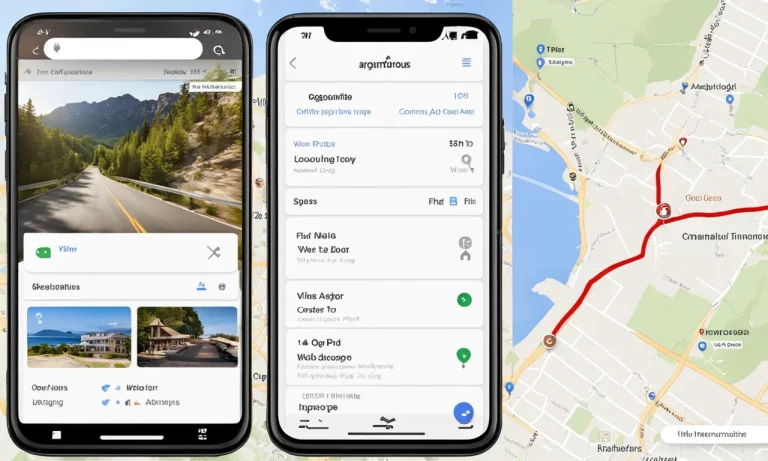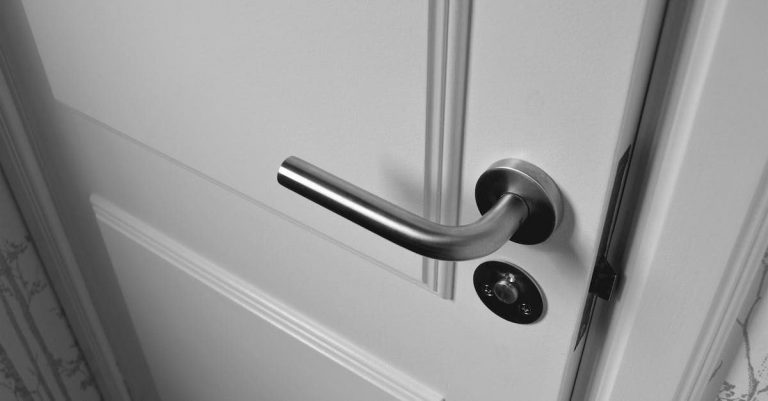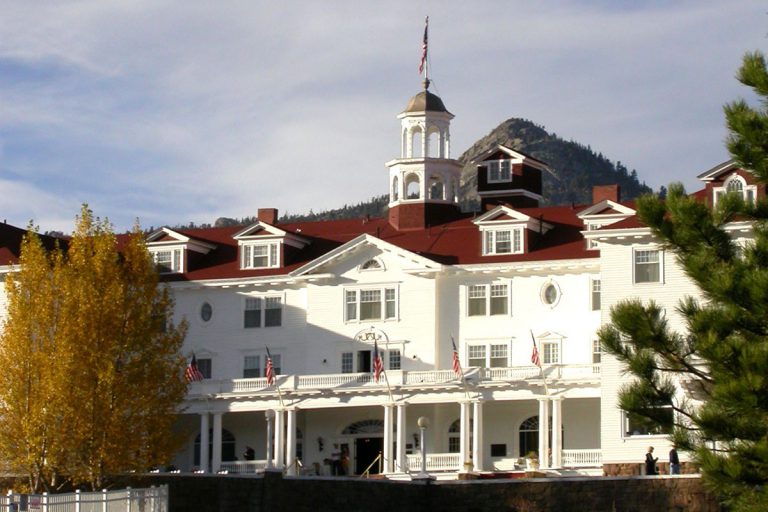In today’s digital world, privacy and data protection are more important than ever before. Customers want to know that their personal information is kept safe when staying at a hotel.
As a hotelier, it is crucial that you have systems and policies in place to protect your guests’ confidential data.
If you don’t have time to read the full article, here’s a quick overview of how to ensure guest confidentiality in hotels: Install endpoint protection software on all devices, encrypt sensitive data, train staff on privacy policies, get guest consent before sharing info, and safely dispose of records.
In this comprehensive guide, we will explore the best practices hotels should follow to keep customer data secure. From physical security measures to digital privacy controls, we will outline everything you need to know to safeguard your guests’ sensitive information.
You will learn about access controls, encryption methods, staff training requirements, data retention policies, and more. By implementing these confidentiality protocols, you can build trust with guests and remain compliant with privacy laws.
Limit Physical Access to Guest Information
When it comes to ensuring guest confidentiality in hotels, one of the key steps is to limit physical access to guest information. This means taking measures to protect sensitive documents and data from falling into the wrong hands.
Use locked filing cabinets and secure storage
One effective way to safeguard guest information is by using locked filing cabinets and secure storage solutions. These should be kept in a restricted area, accessible only to authorized personnel.
By storing sensitive documents in a secure manner, hotels can reduce the risk of unauthorized access or theft.

Restrict access to front desk terminals
Front desk terminals often contain valuable guest information, including names, contact details, and payment details.
To prevent unauthorized access, hotels should ensure that these terminals are password-protected and accessible only to authorized staff members. Regularly changing passwords and implementing strong authentication protocols can further enhance security.
Don’t leave paperwork lying around
Leaving paperwork with guest information lying around can pose a significant risk to guest confidentiality.
Hotel staff should be trained to keep documents out of sight when not in use, ensuring that they are securely stored or disposed of properly. This includes avoiding leaving guest registration cards or other sensitive documents unattended at the front desk.
Have set procedures for handling documents
Hotels should establish clear procedures for handling guest documents, emphasizing the importance of confidentiality.
This includes guidelines for collecting and storing guest information, as well as protocols for sharing or transferring data internally.
By having set procedures in place, hotels can ensure that guest information is handled in a secure and responsible manner.
For more information and best practices on guest confidentiality in the hotel industry, you can visit the Houston Chronicle website, a trusted source for hotel industry news and insights.
Utilize Digital Security Controls
When it comes to ensuring guest confidentiality in hotels, utilizing digital security controls is of utmost importance. These controls help protect sensitive guest data from unauthorized access and maintain the privacy of your guests.
Here are some key measures to consider:
Install endpoint protection on all devices
Endpoint protection software plays a crucial role in safeguarding the devices used by hotel staff and guests.
This software helps detect and prevent malware, ransomware, and other cyber threats that can compromise guest confidentiality. By regularly updating and maintaining endpoint protection on all devices, hotels can significantly reduce the risk of data breaches.

Encrypt sensitive guest data
Encryption is an essential technique for securing sensitive guest data. By encrypting data, hotels can ensure that even if it falls into the wrong hands, it remains unreadable and unusable.
Implementing strong encryption algorithms and protocols should be a standard practice to protect guest information.
Use secure networks and WiFi
Hotels should provide secure networks and WiFi connections to their guests. Using encryption protocols such as WPA2 (Wi-Fi Protected Access 2) can help prevent unauthorized access and eavesdropping.
Regularly updating network equipment and keeping up with industry best practices enhances the security of these connections.
Require strong passwords
One of the simplest yet effective ways to enhance digital security is by requiring strong passwords.
Encourage guests and employees to create complex passwords that include a mix of uppercase and lowercase letters, numbers, and special characters. Regularly changing passwords and implementing multi-factor authentication adds an extra layer of security.
Limit employee access rights
Limiting employee access rights is crucial to prevent unauthorized access to guest data. Grant access only to the information necessary for their role and regularly review and update access permissions.
By implementing this control, hotels can reduce the risk of internal data breaches caused by employee negligence or malicious intent.
For more information on digital security controls and best practices, you can visit websites like CISA (Cybersecurity and Infrastructure Security Agency) or ISACA (Information Systems Audit and Control Association).
Train Staff on Proper Privacy Practices
Ensuring guest confidentiality in hotels starts with properly training the staff on privacy practices.
By educating the staff on the importance of confidentiality and providing them with the necessary tools and knowledge, hotels can create a culture of privacy and professionalism.
Educate on confidentiality policies
Hotels should have clear and concise confidentiality policies in place, and it is crucial to educate the staff on these policies.
This includes informing them about the types of information that should not be shared, such as guest names, room numbers, or any personal details, unless given explicit consent.
Don’t share details without consent
Staff members should be reminded that sharing any details about guests without their consent is a violation of their privacy.
This includes refraining from discussing guest information in public areas or with other guests, as well as being cautious when answering phone inquiries.

Remind staff to be discreet
It is important to remind staff members to be discreet when handling guest information. This means not discussing guest details in front of other guests or non-essential staff members.
Additionally, staff should be trained on the proper way to handle guest documents and ensure they are securely stored when not in use.
Highlight compliance obligations
Hotels have legal obligations to protect guest confidentiality and comply with privacy laws. Staff should be made aware of these obligations and the potential consequences of non-compliance.
This can help emphasize the importance of following proper privacy practices and ensure that all staff members are accountable for their actions.
Lead by example from management
Management plays a crucial role in setting the tone for guest confidentiality. By leading by example and prioritizing privacy in their own actions, managers can influence their staff to do the same.
This can be done by consistently following privacy protocols, addressing any privacy breaches promptly, and fostering a culture of privacy and trust within the hotel.
Obtain Guest Consent for Data Use
When it comes to ensuring guest confidentiality in hotels, obtaining guest consent for data use is a crucial step. By obtaining explicit consent from guests, hotels can establish trust and transparency in their data handling practices.
Here are some effective strategies to obtain guest consent:
Explain how info will be used
Transparency is key when it comes to obtaining guest consent. Hotels should clearly explain how the guest’s information will be used and assure them that their data will be handled securely.
By providing detailed information about data usage, hotels can help guests make informed decisions about granting consent.
Have opt-in boxes on forms
Hotels can include opt-in boxes on registration forms and other guest-related documents.
These boxes should clearly state that by checking the box, guests are giving their consent for the hotel to use their data for specific purposes. This ensures that guests are aware of and agree to the hotel’s data usage policies.
Allow guests to update preferences
Guest preferences may change over time, and hotels should provide an easy way for guests to update their consent preferences.
By allowing guests to update their preferences, hotels demonstrate their commitment to respecting guest choices and maintaining guest confidentiality.

Honor do-not-contact requests
Some guests may choose to opt out of receiving marketing communications or being contacted by the hotel. It is essential for hotels to honor these do-not-contact requests promptly.
This not only respects guest privacy but also helps build a positive reputation for the hotel in terms of guest confidentiality.
Review permissions at checkout
During the checkout process, hotels can take the opportunity to review the permissions granted by the guest. This allows the hotel staff to ensure that the guest’s data usage preferences are up to date and accurate. It also provides an opportunity to address any concerns or questions the guest may have regarding their data usage.
By implementing these strategies, hotels can establish a strong foundation for ensuring guest confidentiality and data privacy.
Remember, guest consent is vital in maintaining trust and building long-term relationships with guests.
Securely Retain and Dispose of Records
One of the most important aspects of ensuring guest confidentiality in hotels is securely retaining and disposing of records.
This means implementing proper procedures for handling both physical and digital documents. By following these guidelines, hotels can protect sensitive guest information and maintain their trust.
Follow document retention laws
Hotels should familiarize themselves with the document retention laws in their respective jurisdictions. These laws specify how long certain types of records need to be kept.
By adhering to these regulations, hotels can avoid legal issues and ensure that guest information is stored for an appropriate period of time.
Shred papers when no longer needed
Physical documents containing guest information should be shredded when they are no longer needed. This minimizes the risk of sensitive information falling into the wrong hands.
Hotels should invest in high-quality shredders and establish a policy that requires employees to shred papers promptly and properly.
Safely delete digital files
Similarly, digital files that contain guest information should be safely deleted when they are no longer required. This involves permanently removing the files from all storage devices and ensuring that they cannot be recovered.
Hotels should have protocols in place to securely delete data and regularly update their software and systems to protect against cyber threats.
Use reputable record storage
Hotels may need to store certain records for extended periods of time, such as legal documents or financial records. In these cases, it is important to use reputable record storage facilities or services.
These facilities have robust security measures in place to protect against unauthorized access, theft, or damage. Hotels should research and select a reputable provider that meets their specific needs.
Have set destruction schedules
To ensure that records are properly disposed of in a timely manner, hotels should establish set destruction schedules. These schedules should outline when and how different types of records will be destroyed.
By having a systematic approach to record destruction, hotels can minimize the risk of information being retained for longer than necessary.
By securely retaining and disposing of records, hotels can effectively protect guest confidentiality and safeguard sensitive information. Implementing these practices will not only comply with legal requirements but also contribute to maintaining a strong reputation in the hospitality industry.
Conclusion
Protecting guest confidentiality should be a top priority for every hotelier. By limiting access, securing data, training staff, obtaining consent, and properly retaining records, you can keep customer information private.
Not only will excellent privacy practices give your guests peace of mind, but they will also ensure you avoid costly data breaches and remain compliant with regulations.
Building a reputation for security and discretion will win you loyalty in this age of heightened data awareness. Take the necessary steps outlined here to preserve confidentiality, and your guests will feel cared for and respected.






